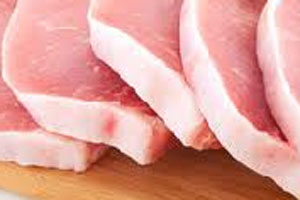Research: Carnitine as damaging chemical in pork

US scientists mention carnitine, a chemical found in red meat, in an attempt to explain why eating too much pork, veal, beef and lamb is bad for the heart.
Medical scientists have long thought that saturated fat and cholesterol in red meat are the main culprits for a risk of heart disease. A recent study in the scientific journal Nature Medicine, however, points to carnitine, a chemical abundant in red meat.
Lead researcher Dr Stanley Hazen, chief of cellular and molecular medicine at Cleveland Clinic’s Lerner Research Institute, told the BBC: “The cholesterol and saturated fat content of lean red meat is not that high, there’s something else contributing to increases in cardiovascular risk.”
Carnitine
Carnitine helps the body transport fatty acids into cells to be used as energy.
Experiments on both humans and mice, however, indicated that intestinal bacteria can eat carnitine. This is broken down into a gas, and converted in the liver to a chemical called TMAO, linked to the build-up of fatty deposits in blood vessels (atherosclerosis). This phenomenon can lead to heart disease and even death.
The researchers tested the carnitine and TMAO levels of omnivores, vegans and vegetarians, and examined records of 2,595 patients. In patients with high TMAO levels, the more carnitine in their
blood, the more likely they were to develop cardiovascular disease, heart attacks, stroke and death.
Hazen said: “It may be a waste product but it is significantly influencing cholesterol metabolism and the net effect leads to an accumulation of cholesterol. The findings support the idea that less red meat is better.”
Related website:
Cleveland Clinic’s Lerner Research Institute
BBC











